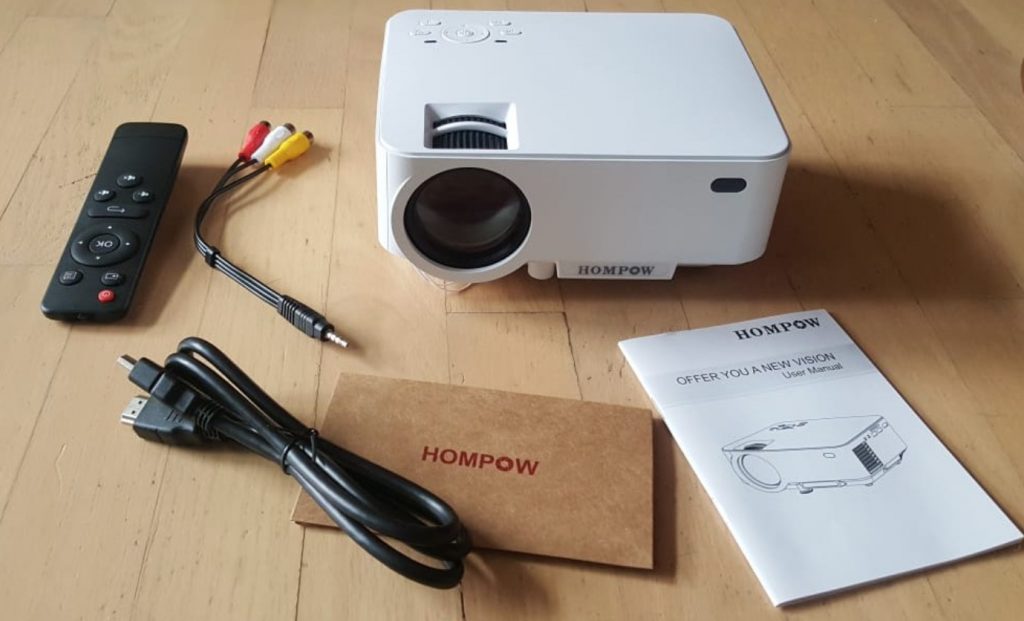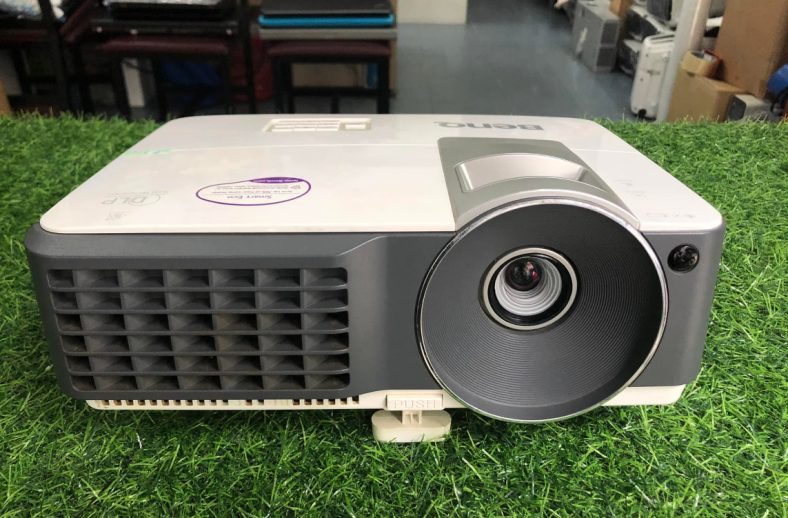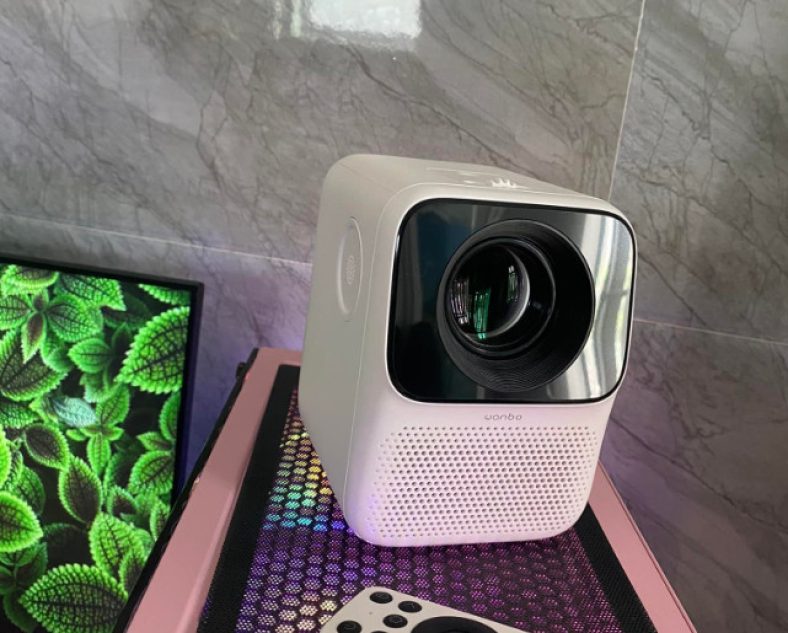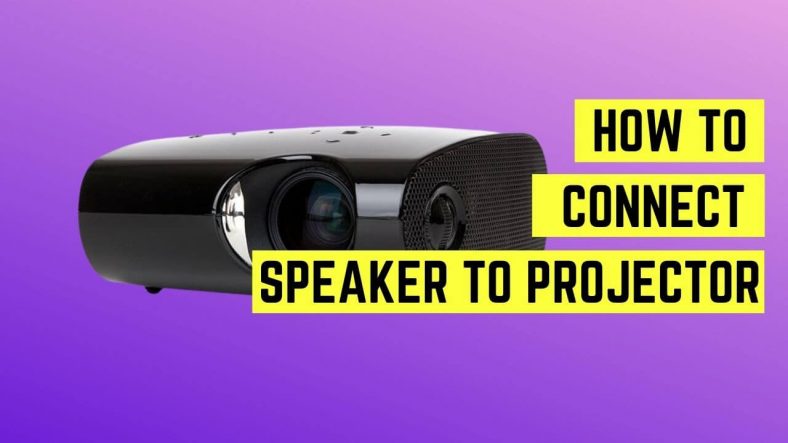Is Projector better than TV?
The projector and TV are the two most popular devices for watching content and entertainment. Both devices can deliver a satisfying watching experience with high-end features and connections.
So, is the projector better than the TV? This post will discuss their advantages and weaknesses in terms of convenience, versatility, and experience. Depending on your needs and usage purpose, each device will be more suitable.
In this post, I will show you which device is the match for you!
Table of Contents
An Overview Of Projectors
While TVs have been the most popular optic device for a long time, projectors gradually gained their popularity in the recent decade.
Unlike TV, a projector work by projecting light on the projection screen.
The projected light will turn into colorful moving images and videos. The most prevalent type of projector nowadays is the video projector. These devices are capable of producing images in high resolutions (4k, 8k) like high-end TVs.
You can replace the regular TVs with the projectors in a home theater system to watch TVs, play games, and even browse the web. Now let’s move on to the core differences between projectors and TVs.
Is Projector Better Than a TV?
The projectors exceed the TVs in portability, screen size, and ease of installation. Whether a projector is better than a TV or not also depends on its configuration, technology, and features like image resolution, contrast, and compatibility.
Screen Size
While TVs come with fixed screen sizes, a modern projector allows users to adjust the projection screen size to fit the space in their room.
By adjusting the lens, you can enlarge or decrease the size of the screen easily without losing image quality.
Furthermore, an advanced projector can produce images from 100 inches to 200 inches. While the most popular screen size of TVs in America is 65 inches.
You need to remember that larger screen sizes are not always better.
To achieve larger display sizes, you have to move the device further away from the projection screen or the wall. Therefore, it is not suitable for small rooms with limited spaces.
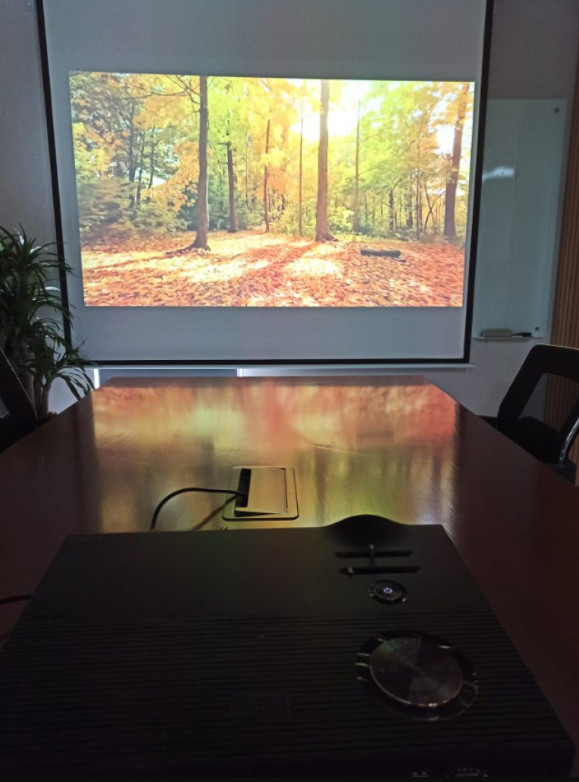
Image Quality
Furthermore, increasing the size of the images means that the pixels will spread out. This effect decreases the image quality and sharpness of the pictures if your projector doesn’t have such a high image resolution.
Meanwhile, the TVs are designed to work optimally with their fixed screen sizes, which produce the highest and sharpest image quality. You won’t encounter any blur effects or image distortions when watching TV like on the projectors.
So what if you use a projector with the same screen size as a TV? It depends on the image resolution of the two devices. You should also consider the refresh rate, image contrast, and the types of panels on each device.
For example, a 4K projector can produce better image quality than a full HD TV and vice versa with the same screen size.
Related: Projector Vs. TV Power Consumption
Ease Of Installation
Ease of installation is perhaps the biggest advantage of the projectors. Many advanced projectors have built-in batteries which can last for up to one day.
Furthermore, a projector is much smaller and lighter than TVs, allowing users to carry them around with minimal effort. If you regularly go camping or move around a lot, a projector is a more convenient option.
You need to mount the TVs to a holder or mount them to the walls to install them.
On the other hand, you can put the projectors in many places (on the ceiling, mounted on the wall, or on a tripod) conveniently to use.
This advantage allows you to conveniently change the watching places and set up the device in different rooms. As long as you can connect it to the power outlet, the projectors are usable in any place.
For example, you can set up the projector in the living room during the day and carry it to the bedroom to enjoy the movies at night.
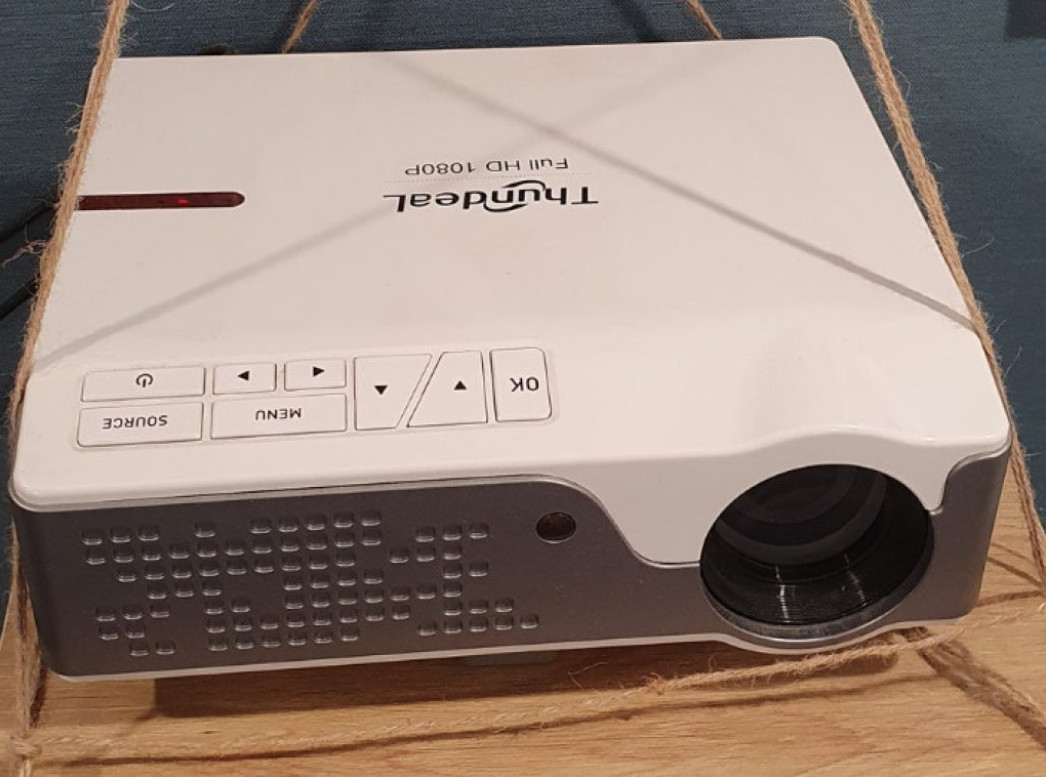
Connectivity
While the TVs can display the videos directly via the broadcasting media and applications, you need to pair the projectors with an additional device, such as a phone or laptop.
However, modern projectors have built-in CPUs and memories, allowing users to access streaming platforms like Youtube or Netflix to enjoy their favorite content.
Projectors can be paired with other devices wirelessly via Bluetooth or Airplay, giving you more comfort and flexibility in the usage process.
Sound
The majority of projectors don’t have a built-in speaker like the TVs. This is a major advantage since you have to purchase an additional speaker.
Nevertheless, the separate speakers can deliver much better audio compared to the built-in speakers on TVs and projectors. So it is worth upgrading your home theater system with an additional speaker to get the best watching experience.
Price
With the same image resolutions and features, a projector is significantly more affordable than a TV. To get a large screen size as the regular projectors on a TV, you have to pay tens of thousands of dollars, which is many times higher.

Which Should You Choose?
So I have covered the basic advantages of projectors compared to TVs.
Each device works best with a specific room’s size and needs. So, which is the best option for you?
If you have a tighter budget and want a decent watching experience, the projector is the better option.
It is suitable for people who travel a lot and regularly want to change their watching places and screen sizes to get new experiences.
Meanwhile, the TVs bring the best image resolution for fixed screen size.
Final Thoughts
Projectors bring greater flexibility and ease of installation. They come at lower prices compared to TVs and still give a satisfying experience.
I hope that the answer and comparisons provided in this post can satisfy you. Thank you for reading!

